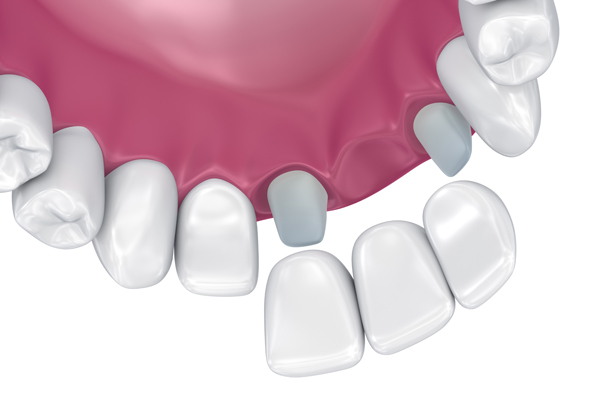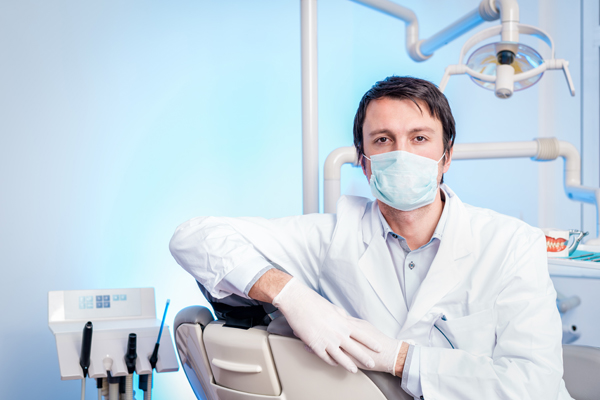Going to an Emergency Dentistry Office for an Abscessed Tooth During the COVID-19 Outbreak

A tooth abscess is an infection that often requires a prompt visit to the emergency dentistry office. With the lockdown in place due to the COVID-19 outbreak, dentists have limited dental procedures to emergency treatment. The extent of pain and swelling typically determines if there is a dental emergency. However, if the abscessed tooth is not treated immediately, the infection may spread to the jawbone, face and neck.
Handling an abscessed tooth
An abscessed tooth is considered a dental emergency. Delaying treatment can potentially have fatal consequences. Abscesses can cause significant pain because the condition is a result of an infection in the inner layer of the tooth. The body tries to fight the infection, causing the buildup of bacteria, tissue and pus. A person with an abscessed tooth may experience significant discomfort. Since the infection is bound to spread, anyone experiencing the symptoms of an abscessed tooth should contact the dentist immediately and visit the emergency dentistry office as soon as possible.
The dentist can recommend antibiotics to minimize the spread of infection. The antibiotics will usually relieve the swelling and pain within a day or two. Still, it is vital to remember that the relief is only momentary; antibiotics will not cure the abscess. The cause of infection is deep inside the tooth and removed from antibiotics, which only works on infections through the bloodstream.
To treat an abscess, the dentist needs to remove the cause of infection (bacteria). This could mean removing the tooth entirely through extraction or cleaning the infection inside and filling the void to prevent further infection. The process of removing infected tooth tissues, cleaning, sterilizing and filling the abscessed tooth is known as root canal therapy.
Symptoms of a tooth abscess
A tooth abscess that causes persistent pain is something to worry about. If it causes severe pain around the jawbone, neck or ear, then there is a major problem. Also, if the abscess makes the teeth sensitive to hot or cold temperatures or causes pain when eating, it should be checked immediately. The abscessed tooth can also cause facial swelling and inflammation of the lymph nodes.
During the call to the dentist, request an urgent appointment and describe the symptoms so they are aware of the severity of the situation. During the wait for the dentistry, one can alleviate discomfort by rinsing the mouth with saltwater solution and over-the-counter pain relievers. If the pain is unbearable, ask the dentist for recommendations. They will recommend medications that will provide comfort until a visit to the office is possible.
A cold compress on the outside of the cheek can minimize swelling. Alcohol and tobacco substances are not advisable. Brushing and flossing also are also needed to continue to remove plaque and bacteria that can worsen the issue.
In conclusion
The emergency dentistry office is available to handle an abscessed tooth during the COVID-19 outbreak. If you suspect a tooth abscess, be sure to call the dentist first for instructions on how to manage the condition and book an appointment.
Request an appointment here: https://www.yourfamilysmiles.com or call Family Dental Care of Chicago at (773) 250-1194 for an appointment in our Chicago office.
Check out what others are saying about our services on Yelp: Read our Yelp reviews.
Recent Posts
Dental bridges replace missing teeth, restoring smile appearance and bite function. They are noninvasive tooth replacements that rely on the surrounding teeth or dental implants for support. A general or cosmetic dentist will create a dental bridge custom-fit to the patient’s smile, ensuring a natural-looking restoration and optimal oral health.Dental bridges are named for the…
Laser dentistry is an alternative to conventional dental treatments. These modern methods offer patients less invasive and more precise procedures. Laser dentistry prioritizes patient comfort while reducing healing time compared to traditional dental methods.Laser dentistry uses focused light energy to treat a variety of dental conditions. There are two primary types of dental lasers: hard tissue lasers and…
Dental veneers allow individuals with cosmetic imperfections and abnormalities to improve their teeth, which leads to an enhanced smile. They have become one of the most popular treatment options, as the procedure is relatively straightforward with little to no discomfort. Additionally, veneers are long-lasting and look very natural, thus making it difficult to detect the…
Teeth whitening can help you achieve a brighter smile. However, maintaining it requires diligent aftercare. Teeth whitening can provide noticeable results, but without proper care, the effects may be short-lived and fade prematurely. The following simple steps can help keep your teeth shining while protecting the investment you made in professional whitening treatment.Consistent oral hygiene…


